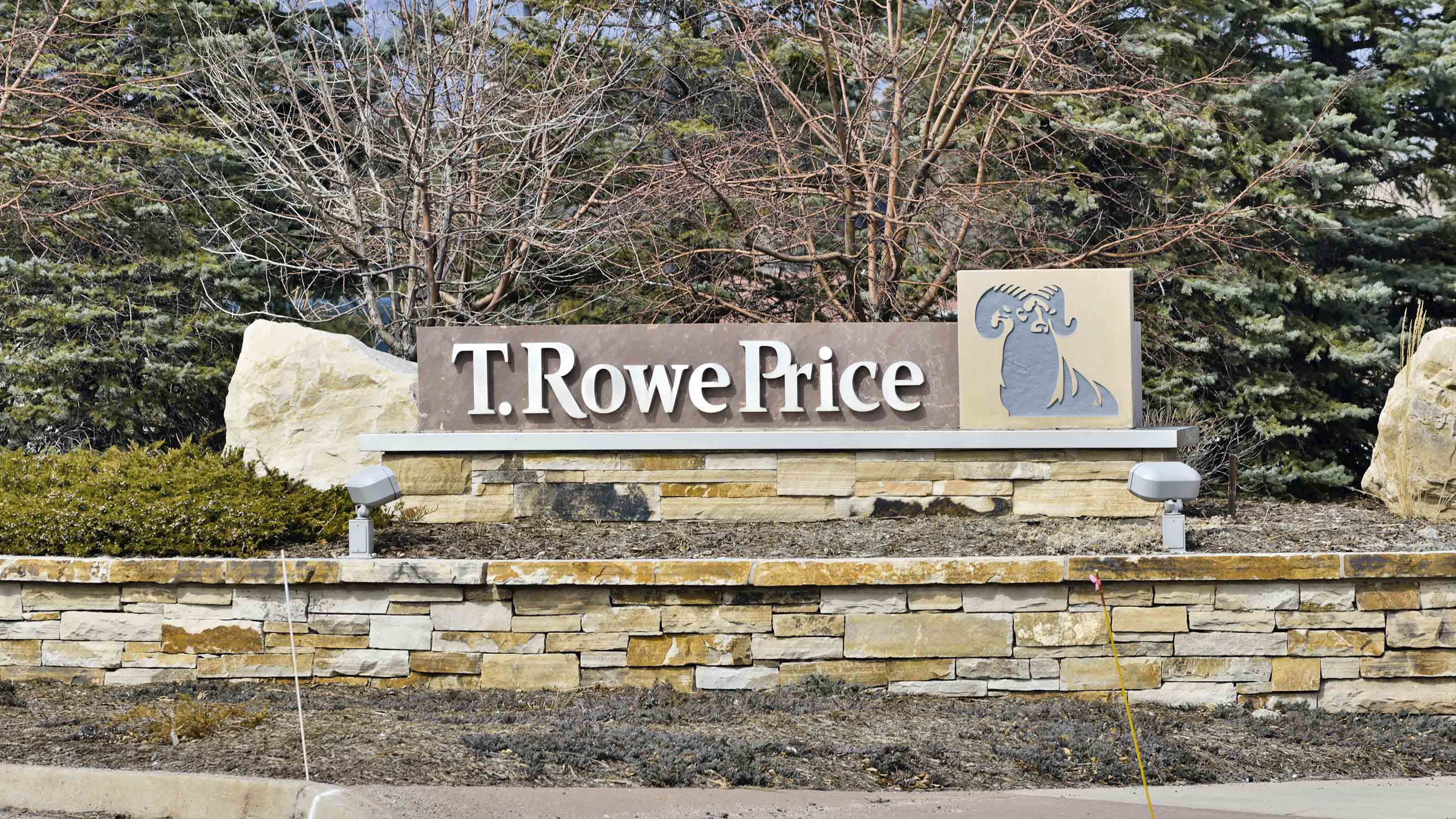The Best T. Rowe Price Funds for 401(k) Retirement Savers
A dozen T. Rowe Price mutual funds enjoy a place among the nation's most popular 401(k) retirement products. Find out which ones are worth your investment dollars.


Profit and prosper with the best of Kiplinger's advice on investing, taxes, retirement, personal finance and much more. Delivered daily. Enter your email in the box and click Sign Me Up.
You are now subscribed
Your newsletter sign-up was successful
Want to add more newsletters?

Delivered daily
Kiplinger Today
Profit and prosper with the best of Kiplinger's advice on investing, taxes, retirement, personal finance and much more delivered daily. Smart money moves start here.

Sent five days a week
Kiplinger A Step Ahead
Get practical help to make better financial decisions in your everyday life, from spending to savings on top deals.

Delivered daily
Kiplinger Closing Bell
Get today's biggest financial and investing headlines delivered to your inbox every day the U.S. stock market is open.

Sent twice a week
Kiplinger Adviser Intel
Financial pros across the country share best practices and fresh tactics to preserve and grow your wealth.

Delivered weekly
Kiplinger Tax Tips
Trim your federal and state tax bills with practical tax-planning and tax-cutting strategies.

Sent twice a week
Kiplinger Retirement Tips
Your twice-a-week guide to planning and enjoying a financially secure and richly rewarding retirement

Sent bimonthly.
Kiplinger Adviser Angle
Insights for advisers, wealth managers and other financial professionals.

Sent twice a week
Kiplinger Investing Weekly
Your twice-a-week roundup of promising stocks, funds, companies and industries you should consider, ones you should avoid, and why.

Sent weekly for six weeks
Kiplinger Invest for Retirement
Your step-by-step six-part series on how to invest for retirement, from devising a successful strategy to exactly which investments to choose.
T. Rowe Price's corporate symbol is the bighorn sheep: a sure-footed and agile climber, even in the roughest terrain. It was chosen to reflect investors' ability to rely on the firm's investment expertise to navigate all types of markets.
As far as the best T. Rowe Price funds are concerned, it's an accurate representation.
In this, part of our annual review of popular workplace retirement funds, we put T. Rowe Price's most widely held 401(k) funds to the test. We analyze five of Price's funds, plus the target-date series T. Rowe Price Retirement, and rate them Buy, Sell or Hold. (Seven Retirement target-date funds appear among the most widely held 401(k) funds in the country – with target years between 2020 and 2050 – but we appraise the series as a whole.)
This story is meant to help savers make good choices among the funds available in their 401(k) plan. It is written with that perspective in mind. Look for our reviews of other big fund firms in the 401(k) world, which currently include Vanguard and Fidelity, and will soon include American Funds as well as Buy-rated funds among all the top 401(k) options.
Read on as we look at some of the best T. Rowe Price funds for your 401(k) plan (and weed out some of the provider's lesser options).
Returns and data are as of Nov. 2. In each review, we refer to the symbol, returns and expense ratio of the share class that is available to most investors. The reason for this is that the share classes of specific funds offered in 401(k) plans can vary, depending in part on the size of the plan.

T. Rowe Price Blue Chip Growth: HOLD
- Symbol: TRBCX
- Expense ratio: 0.68%
- 1-year return: 31.4%
- 3-year annualized return: 25.4%
- 5-year annualized return: 24.8%
- 10-year annualized return: 19.3%
- Rank among the top 401(k) funds: #20
- Best for: Long-term growth, but a new manager has us pushing the pause button
T. Rowe Price Blue Chip Growth has long been one of the best T. Rowe Price funds widely available in 401(k) plans, but a recent change gives us at least momentary pause.
Larry Puglia retired in October as longtime manager of this blockbuster fund after nearly 30 years. Since he launched TRBCX in June 1993 (with Thomas Broadus, who stepped down in 1997), it has delivered a 12.4% annualized return, which handily beats the S&P 500 return of 10.6% over the same period.
Puglia's departure is the main reason we have a Hold on the fund.
New manager Paul Greene started at T. Rowe Price as an analyst in 2006 and was a manager of T. Rowe Price Communications & Technology (PRMTX) from May 2013 to April 2020. During that time, the fund returned 13.8% annualized, beating the typical communications fund as well as the average tech fund and the S&P 500.
That's some evidence that Greene has the chops to run Blue Chip Growth. But the transition between managers can be tricky. Even though Greene will manage to TRBCX's objective – to invest in stocks of large, established companies with above-average growth potential – his buying and selling decisions will vary from Puglia's, for better or for worse. He might want to shift the portfolio he inherited a bit, too.
Also, this is his first stint as sole manager of a diversified U.S. stock fund – one with a whopping $101 billion in assets.
On top of that, Price recently filed to have TRBCX reclassified as non-diversified, from diversified, with the Securities & Exchange Commission. That allows Greene to invest a greater portion of the fund's assets in fewer issuers, and it could kick up the fund's volatility a bit. So, while we're cautiously optimistic that Greene will do well as the new manager at Blue Chip Growth, we have a Hold on the fund for now as we wait and see what he does and how it affects the fund's performance.

T. Rowe Price Growth Stock: BUY
- Symbol: PRGFX
- Expense ratio: 0.64%
- 1-year return: 36.8%
- 3-year annualized return: 26.5%
- 5-year annualized return: 24.4%
- 10-year annualized return: 18.9%
- Rank among the top 401(k) funds: #48
- Best for: Investors looking for extra exposure to large, fast-growing companies
T. Rowe Price Growth Stock is one of three large-company growth funds from T. Rowe Price – along with Blue Chip Growth and Large-Cap Growth I (TRLGX) – that rank among the most widely held 401(k) funds. That's hardly surprising given the firm's rich record with growth investing. Chances are your 401(k) plan only offers one of them, so you won't have to choose between them.
PRGFX is a decent choice for investors looking for a good growth fund. Manager Joe Fath likes to invest in companies that feature one or more of the following characteristics: industry leadership in a lucrative part of the economy, superior growth in earnings and cash flow, an ability to sustain or expand earnings momentum even during tough economic times. The traits typically lead Fath to concentrate on four sectors: information technology, consumer discretionary, communications services and healthcare.
"These segments," he says, which currently make up more than 90% of the fund's assets, "are areas where we can find innovative companies that offer above-average growth prospects."
Since Fath took over in January 2014, T. Rowe Price Growth Stock has returned 17.3% annualized, better than the 14.7% average gain in the S&P 500 over the same period.
In mid-2021, PRGFX shareholders agreed to reclassify the fund as non-diversified, instead of diversified, meaning the fund can invest a greater portion of its assets in fewer issuers. This could lead to more volatility, but the firm has said publicly that it believes reclassification won't "substantially affect the way a fund is currently managed."
Fath hasn't made significant changes to the portfolio, yet. In late 2020, the fund's biggest 10 holdings in the fund represented 45.9% of the fund's assets. At the end of September 2021 – three months after Growth Stock was reclassified – the top 10 holdings represented 46.9% of the fund's assets.
He currently holds stock in 117 companies. Some are familiar, including, Amazon.com (AMZN), Microsoft (MSFT) and Alphabet (GOOGL). Others – such as electric vehicle maker Rivian, one of the fund's best performers in the first half of 2021 – are investments in private companies that have yet to go public. (Note: Rivian is expected to go public in November under the ticker "RIVN.")
"Our access and ability to invest in private placements will continue to help the fund stand out from its industry peers," says Fath.
PRGFX is one of the best T. Rowe Price funds available in 401(k) plans, and a solid growth stock fund for investors looking to spice up their core portfolio.

T. Rowe Price Large-Cap Growth I: BUY
- Symbol: TRLGX
- Expense ratio: 0.56%
- 1-year return: 38.1%
- 3-year annualized return: 27.2%
- 5-year annualized return: 27.1%
- 10-year annualized return: 20.3%
- Rank among the top 401(k) funds: #46
- Best for: Aggressive investors looking for above-average returns
Regular mom-and-pop investors can't invest in T. Rowe Price Large-Cap Growth I, which has a $1 million minimum and is designed for institutional clients, such as a 401(k) plan. But it's one of T. Rowe Price's best funds. And it sports a well-below-average 0.56% expense ratio, the lowest of all the T. Rowe Price actively managed U.S. stock funds highlighted in this story.
Manager Taymour Tamaddon took over in early 2017, so we limit our scrutiny to the length of his tenure. But Tamaddon delivers, with a 26.6% annualized return since he stepped in as manager. That beats the average 22.7% annualized return of his peers – funds that invest in large, growing companies – as well as the 18.3% average annual gain in the S&P 500 index.
Tamaddon, like almost every other U.S. growth stock fund manager, holds the usual suspects at the top of his portfolio. but he takes sizeable bets. Alphabet, Microsoft and Amazon.com, at last report, were the top three holdings and represented nearly 27% of the fund's assets. Those three stocks have been big contributors to TRLGX's recent performance. Over the past 12 months, the fund has gained 38.1%.
Along with Blue Chip Growth and Growth Stock, Large-Cap Growth was also reclassified in mid-2021 as a non-diversified fund with the SEC, which allows it to concentrate in a certain sector, industry or geographic area. Tamaddon already takes big stakes in specific stocks. But further concentration might add to the fund's volatility.
Even so, as long as you can stomach the bumps along the way, T. Rowe Price Large-Cap Growth is a solid choice for investors looking to tap into fast-growing U.S. companies.

T. Rowe Price Mid-Cap Growth: BUY
- Symbol: RPMGX
- Expense ratio: 0.73%
- 1-year return: 31.5%
- 3-year annualized return: 20.6%
- 5-year annualized return: 19.6%
- 10-year annualized return: 16.2%
- Rank among the top 401(k) funds: #50
- Best for: Investors looking for long-term growth
For close to three decades, manager Brian Berghuis has run T. Rowe Price Mid-Cap Growth (it will be 30 years in June 2022), delivering a 14.3% annualized return over the period. No other diversified U.S. stock fund manager in the country has done better – for as long. Although three other diversified U.S. stock funds sport slightly higher annualized returns over that period, none were earned by the same manager over the entire period.
RPMGX has been closed to new investors since 2010. But if Mid-Cap Growth is offered in your 401(k), that doesn't matter. Participants in a retirement-savings plan that includes Mid-Cap Growth as an investment option can invest at any time.
Now the only question is how much longer Berghuis, who just entered his 60s, will stick around. He has not announced any plans to retire. That's good news. But Mid-Cap Growth has taken on associate managers, which at T. Rowe Price is sometimes a signal (albeit a distant one) that a manager transition is in the works. The firm prefers to make changes slowly, and adding associate managers to a fund a year in advance of a manager change is not uncommon.
Berghuis still is lead portfolio manager and is ultimately responsible for portfolio decisions, but Donald Easley and Ashley Woodruff were recently named associate managers on the fund; John Wakeman has been an associate portfolio manager since 1992.
We're envious of those 401(k) plan participants who can invest in RPMGX. It's all-around one of the best T. Rowe Price funds on offer.

T. Rowe Price New Horizons: BUY
- Symbol: PRNHX
- Expense ratio: 0.75%
- 1-year return: 38.7%
- 3-year annualized return: 33.0%
- 5-year annualized return: 31.0%
- 10-year annualized return: 22.1%
- Rank among the top 401(k) funds: #66
- Best for: Aggressive minded investors with a long-term view looking for exposure to small and midsize companies
T. Rowe Price New Horizons has entered a new chapter with manager Joshua Spencer, who stepped in after superstar Henry Ellenbogen abruptly left T. Rowe Price in April 2019. So far, it's been thrilling. Since Spencer took over, he's pounded the competition with a 35.2% annualized return, beating 94% of its peers, funds that invest in midsize, growing companies, and far and away ahead of the 20.4% annualized gain in the Russell Midcap Index.
PRNHX is closed to new investors, but if it's offered in your employer-sponsored retirement savings plan, you're free to buy shares as a first-time investor in the fund.
Ellenbogen was a tough act to follow. During his nine-year tenure as manager of New Horizons, the fund posted an 18.7% annualized return, beating every diversified stock index imaginable, and all but one U.S. diversified stock fund: a small-company fund called Virtus KAR Small-Cap Growth (PXSGX).
But Spencer has made his mark on PRNHX. Like Ellenbogen, he looks for small, undiscovered emerging companies that offer the potential for accelerated earnings growth because of new products, a revitalized management team, or a structural shift in the economy. Investments in private companies – including shoemaker Allbirds (BIRD), which only very recently went public; apparel company Rent the Runway; and Tempus Labs, a biotech firm – represent 5% of the fund's assets and offer the promise of enhanced returns.
Although Spencer focuses on companies with $7 billion or less in market value at the time of purchase, like his predecessor, he'll hang on as long as the company is growing. It's one reason New Horizons, which started under Ellenbogen as a small-company growth fund, is now classified a mid-cap growth fund. Most of the fund's top 10 holdings predate Spencer as manager. Veeva Systems (VEEV), a cloud-computing company, for instance, has been in the fund since 2017 and boasts a market value of $45 billion.
This is a solid option for investors who want to invest early in companies with solid growth prospects.

T. Rowe Price Retirement Target-Date Series: BUY
- Rank among the top 401(k) funds: #27 (TRRCX, 2030); #41 (TRRDX, 2040); #45 (TRRHX, 2025); #49 (TR, 2020); #53 (TRRJX, 2035); #69 (TRRKX, 2045); #72 (TRRMX, 2050)
- Best for: Investors who want a managed, diversified approach to their retirement savings
Target-date funds take the worry out of investing your retirement savings because experts handle everything for you. They decide how much of your assets should hold stocks or bonds and when your portfolio needs rebalancing. They even work to make your money last throughout your retirement.
The key to a top-notch target-date fund is the asset-allocation plan behind it. And for the past decade, T. Rowe Price has had a winning one. The proof is in the long-term performance record of the funds in this target-date series, which is the third biggest in the country after Vanguard and Fidelity. Over the past three, five and 10 years, T. Rowe Price Retirement target-date funds have posted returns that rank among the top decile of their respective peer group.
The "Retirement" series is Price's flagship target-date product. The firm has since launched other target-date products. One, called "Target," is slightly more conservative than its older sibling Retirement. While Retirement holds 55% of its assets in stock at retirement, Target holds 42.5%. And earlier this year, Price introduced the "Retirement Blend" series, which relies on a mix of active and passive funds.
But the firm's Retirement target-date funds dominate the 401(k) world. The funds hold 24 to 26 mostly actively managed mutual funds, depending on the target year. The most popular one, T. Rowe Price Retirement 2030, holds 26 funds, including some of the stellar portfolios we highlighted here, such as New Horizons and Mid-Cap Growth, as well as one index fund, T. Rowe Price Equity Index 500 (PREIX).
The Retirement target-date series are highly diversified and includes exposure to a wide variety of assets, including long-term Treasuries, foreign stocks and bonds, emerging-markets stocks and bonds, floating-rate loans and real assets, such as natural resources, real estate and commodities.
The asset allocation team, headed by Wyatt Lee, frequently makes adjustments to the target-series glidepath or to the fund lineup. In the first half of 2020, for instance, the team initiated a glide path tweak that raised the overall stock allocation and lowered the bond allocation at certain points along the glide path. Like all changes at Price, the shifts will be made slowly and won't be completed until mid-2022. Ultimately, the stock allocation at the beginning of the glide path – with 40 years before retirement – will increase to 98% from 90%. And at the glide path's end – 30 years after retirement – the stock holdings will sit at 30%, up from 20%.
This target-date series includes some of the best T. Rowe Price funds you could want to shepherd your retirement. They're a fine choice for retirement savers who want professional investment management for their 401(k) money.
Learn more about T. Rowe Price Retirement funds at the T. Rowe Price provider site.
Profit and prosper with the best of Kiplinger's advice on investing, taxes, retirement, personal finance and much more. Delivered daily. Enter your email in the box and click Sign Me Up.

Nellie joined Kiplinger in August 2011 after a seven-year stint in Hong Kong. There, she worked for the Wall Street Journal Asia, where as lifestyle editor, she launched and edited Scene Asia, an online guide to food, wine, entertainment and the arts in Asia. Prior to that, she was an editor at Weekend Journal, the Friday lifestyle section of the Wall Street Journal Asia. Kiplinger isn't Nellie's first foray into personal finance: She has also worked at SmartMoney (rising from fact-checker to senior writer), and she was a senior editor at Money.
-
 Dow Adds 1,206 Points to Top 50,000: Stock Market Today
Dow Adds 1,206 Points to Top 50,000: Stock Market TodayThe S&P 500 and Nasdaq also had strong finishes to a volatile week, with beaten-down tech stocks outperforming.
-
 Ask the Tax Editor: Federal Income Tax Deductions
Ask the Tax Editor: Federal Income Tax DeductionsAsk the Editor In this week's Ask the Editor Q&A, Joy Taylor answers questions on federal income tax deductions
-
 States With No-Fault Car Insurance Laws (and How No-Fault Car Insurance Works)
States With No-Fault Car Insurance Laws (and How No-Fault Car Insurance Works)A breakdown of the confusing rules around no-fault car insurance in every state where it exists.
-
 States That Tax Social Security Benefits in 2026
States That Tax Social Security Benefits in 2026Retirement Tax Not all retirees who live in states that tax Social Security benefits have to pay state income taxes. Will your benefits be taxed?
-
 Best Mutual Funds to Invest In for 2026
Best Mutual Funds to Invest In for 2026The best mutual funds will capitalize on new trends expected to emerge in the new year, all while offering low costs and solid management.
-
 What Fed Rate Cuts Mean For Fixed-Income Investors
What Fed Rate Cuts Mean For Fixed-Income InvestorsThe Fed's rate-cutting campaign has the fixed-income market set for an encore of Q4 2024.
-
 The Most Tax-Friendly States for Investing in 2025 (Hint: There Are Two)
The Most Tax-Friendly States for Investing in 2025 (Hint: There Are Two)State Taxes Living in one of these places could lower your 2025 investment taxes — especially if you invest in real estate.
-
 The Final Countdown for Retirees with Investment Income
The Final Countdown for Retirees with Investment IncomeRetirement Tax Don’t assume Social Security withholding is enough. Some retirement income may require a quarterly estimated tax payment by the September 15 deadline.
-
 What to Do With Your Tax Refund: 6 Ways to Bring Growth
What to Do With Your Tax Refund: 6 Ways to Bring GrowthUse your 2024 tax refund to boost short-term or long-term financial goals by putting it in one of these six places.
-
 What Does Medicare Not Cover? Eight Things You Should Know
What Does Medicare Not Cover? Eight Things You Should KnowMedicare Part A and Part B leave gaps in your healthcare coverage. But Medicare Advantage has problems, too.
-
 12 Great Places to Retire in the Midwest
12 Great Places to Retire in the MidwestPlaces to live Here are our retirement picks in the 12 midwestern states.
